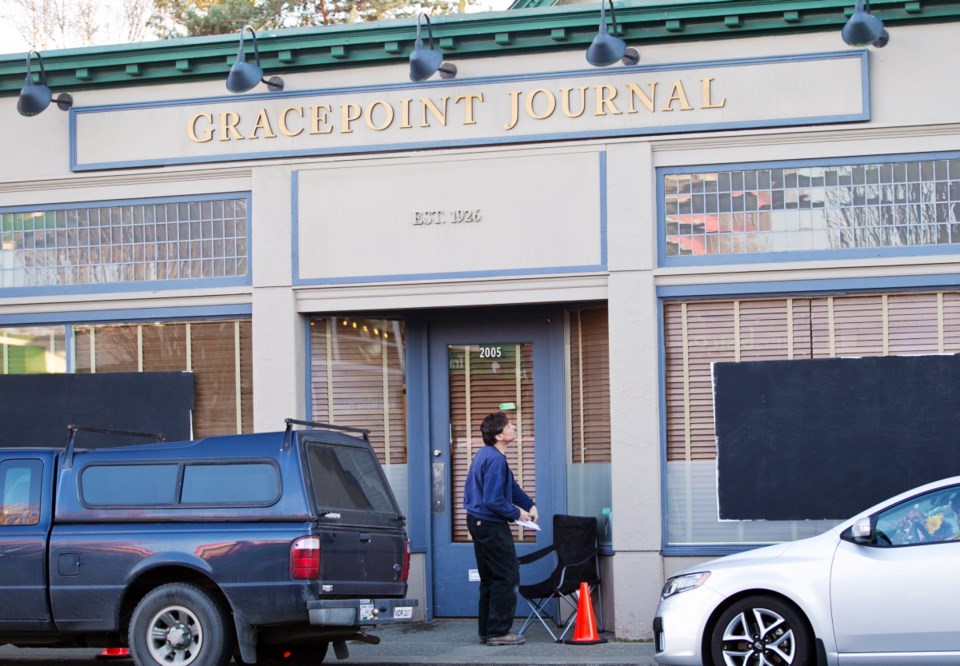The Vancouver Island South Film and Media Commission has pointed out that we need more resident crew members if we want to continue to expand the film and television industry here on the Island. While this is certainly true, we need to look at this from the perspective of the Hollywood producers who might want to shoot here.
Given the consistency of B.C. tax credits over the years, and the enduring stellar reputation of our crews and infrastructure, it seems obvious that the current low Canadian dollar is driving the surge in British Columbia TV and film production in general, and the mini boom for the Victoria area. And since there is no sign of our dollar strengthening in the near future, this presents an opportunity for B.C. in general, but the capital region in particular.
However, that local increase masks the sad fact that most of our production is low-budget fare, and at least some of it by producers who appear to be here to avoid working with Vancouver’s highly unionized crew base.
Major Hollywood productions have long favoured the Island for specific kinds of location-driven projects that form a small part of overall production.
If you need a castle, Victoria is the place to come. We offer many other unique locations that are attractive for what is referred to as “second unit shoots.” Main units are more elusive.
The TV series Gracepoint is the only recent example of anyone with a significant budget shooting start to finish here in Victoria. I spoke to several of their senior production people after they wrapped, and they made it clear there would never have been a second season here, no matter what the ratings might have been.
It is too expensive when the bulk of your crew has to be brought in from Vancouver and must be union members.
For example, if Gracepoint needed an additional stills photographer for one day, they would have to pay them travel time to get to the Island, travel time to get back, accommodation and per diems.
This could easily double the cost. Multiply that with a crew of 200 people and the costs add up substantially.
While low-budget production has great value in training crew members and providing some employment, it does nothing to address the goal of attracting the big leagues.
Hollywood needs not just any crew here, but unionized technicians and camera teams. Without these, Warner Bros., Fox, ABC, NBC and other majors are just not going to come calling.
Companies like Front Street have developed a lucrative business model that employs unionized actors and directors, but avoids the expense of union technicians represented by the B.C. Council of Films Unions and ACFC West.
So while producers on similar productions throughout western Canada have found a way to work with these groups and their affiliated unions, Victoria has become the place to hide. Only two of the 10 shows mentioned in the Times Colonist article (“Film, TV production booms in the capital,” March 6) will be fully unionized productions.
As a former film worker, I can attest to the frustration in trying to build the kind of crew base that will appeal to the real Hollywood. It is ironic that Victoria is often seen to be politically progressive in respect to our voting patterns, but not, it would appear, in our film industry.
If we ever want to see another multimillion-dollar production, we have to do better.
Marcus Handman is now retired, but was the business agent and lead negotiator for the International Cinematographers Guild and executive director for the Directors Guild of Canada.



